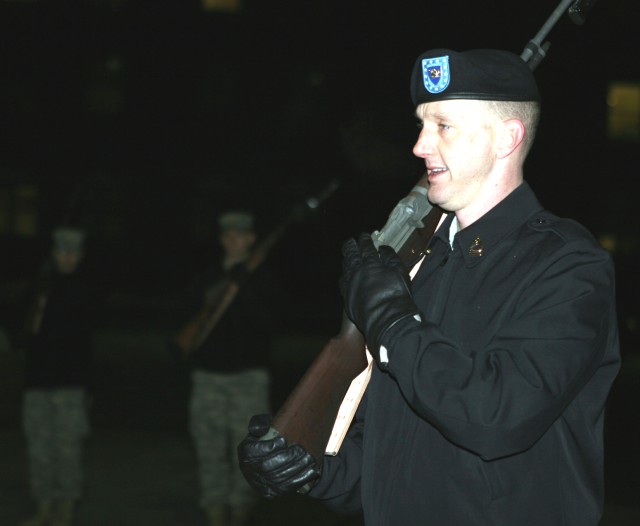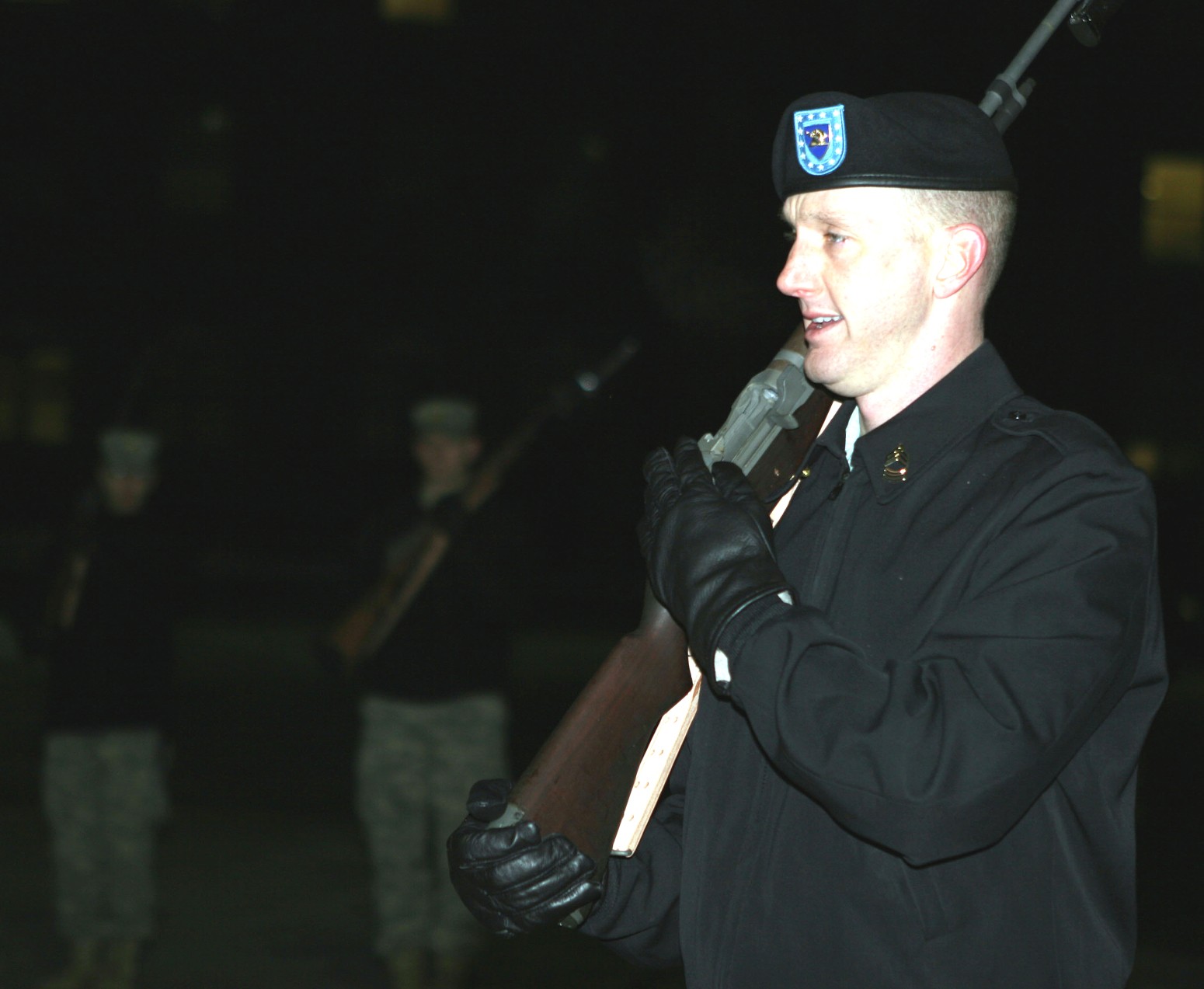There isn't much one could sneak past Master Sgt. Chris DuBois. After all, being a stickler is pretty much his job description.
DuBois is known by many U.S. Military Academy cadets as the drill master.
And he can't really help it. His job as the Corps of Cadets' drill and ceremonies coordinator requires he pay attention to every detail -- even if that means accidentally picking up on several minute mistakes in a parade photo on the cover of the 2008 Register of Graduates, which happened to fall into DuBois' glance one morning.
But when the world watches the Corps of Cadets in seamless perfection -- as they will Tuesday during the inauguration parade in Washington -- DuBois beams with pride.
"I get really excited," DuBois, who is responsible for making sure each detail from the way a cadet looks to how he/she marches in ceremonies is perfect, said. "I am proud when they look really good. It makes me happy because we spend a lot of time on it. When people watch them, it shows how disciplined (cadets) are. It's really rewarding."
DuBois decided to enlist in the Army after participating in Junior ROTC in high school and enjoying it. He has completed more than 18 years as a Soldier and plans to make it a full 20.
"I decided within the first couple of years to make the 20," DuBois said, citing the mark at which Soldiers may retire from the Army. "Being in the infantry, I really liked the outside stuff.
"It appealed to the inner ape in me, I guess," DuBois said laughing.
As a private, DuBois was chosen to be part of the prestigious Old Guard and learned the importance of perfection as part of the drill team. He had been hit in the head with heavy rifles that were not thrown or caught properly, twice dislocated his thumb and broke his wrist once while catching rifles and saw a fellow drill team member get skewered in the shoulder by a bayonet.
He also learned the pressure of being perfect like few others have in 1993 when he was a member of the joint-service cordon for President Clinton's first inauguration.
"We went through the Capitol with him to get sworn in," DuBois said. "I was the tallest, so I was the first Army guy in the formation. The first President Bush patted me on the shoulder, but I couldn't react to it."
DuBois had to retain complete poise and composure and could not acknowledge any greetings. He did, however, remember seeing the new first Family and a young Chelsea Clinton giggling with her friends.
Later in his career, DuBois became a drill sergeant. The skills he learned in the Old Guard and as a drill sergeant come together well for his current assignment because he learned the details in the Old Guard and how to teach as a drill sergeant, he said. DuBois has been the drill and ceremonies coordinator since November 2006.
Cadets learn the basics of marching in cadet basic training. They learn more advanced skills and practice with the help of upperclassmen. DuBois then puts the polish on the skills cadets already learned.
"A lot of cadets work very hard behind the scenes," he said. "You can't have a parade without cadets. The cadets work just as hard as I do."
And the public notices. Many people told DuBois they couldn't figure out how cadets knew where to march, when to stop and when to about-face during the Army-Navy football game march on.
The secret was cues being given via flags in the stands, but the execution still was perfect. DuBois recorded the game and fast forwarded to all the cadet march on shots to watch again how well the cadets did.
"It looked great. For the about-face, it looked like someone pulled a string, and they all moved at the same time," DuBois said.
Along with making sure cadets look perfect for ceremonies, DuBois provides a leadership example and also fields many questions about what will be expected of cadets when they are commissioned and become lieutenants. DuBois has been a platoon sergeant and hopes to be a good example of what new lieutenants can expect from noncommissioned officers in the rest of the Army.
"We don't have a lot of representation of the NCO Corps at West Point," DuBois said. "I hope I can be another example of the professional NCO. I enjoy this assignment. I get to give back so hopefully others won't make the same mistakes I made or saw other people make."
This year has been designated the Year of the Noncommissioned Officer across the Army.
As a leader, DuBois tries to give others the tools they need to complete a job without micromanaging. He also allows people to make mistakes -- as long as foreseeable consequences won't be catastrophic -- so they can learn from them.
Many cadets enjoy picking his brain so they can be better leaders. DuBois, who has deployed twice to Iraq, participates in combat leader panels to teach cadets about leadership skills and also volunteers with the paintball club.
"If drill and ceremony is all I did, this assignment wouldn't be nearly as rewarding as it is," DuBois said.


Social Sharing